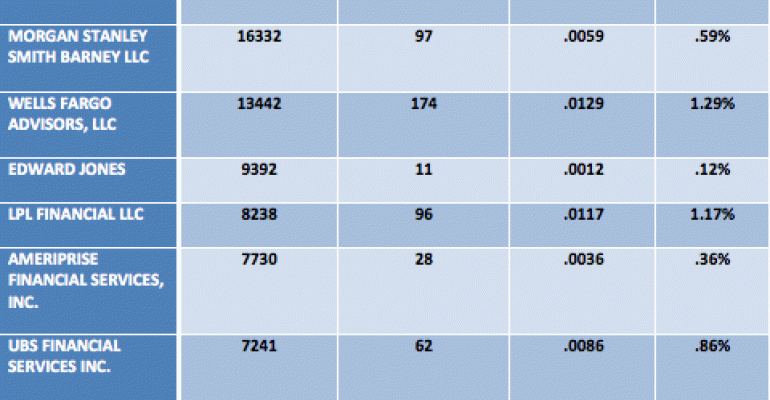There used to be an unspoken code of sorts. Guys who were fired from brokerage firms were often given the chance to resign rather than have their U5 marked as “terminated” - so long as they didn’t do anything wrong.
Being fired for cause (perhaps violating written supervisory procedures, mistreating co-workers or customers, etc.) requires a full write-up by compliance as far as the details of the termination. But being let go 'just because' - that was an area (alas, one of the only areas) where branch managers were able to use their judgment.
If a broker was being let go because he or she just wasn’t working hard, maybe not even showing up or doing any business at all, that’s sad enough; there were probably some personal issues going on outside of the office. The last thing a branch manager wanted to do was make that employee unable to be employed by another firm. So it was usually a conversation like, “Look Bill, you’re a nice guy and everyone likes you, but you’re really just wasting our time here and you’re barely doing anything. Save us and yourself the trouble of making us fire you, type up a resignation and we’ll leave it there.”
This was the code because all registered reps, managers, compliance officers and firm owners know that a terminated broker - even those with no disciplinary record or marks on their license - is completely unhirable in almost all cases. When a prospective employer in the brokerage world sees a CRD with the word “termination” written on it, it immediately raises eyebrows and makes the potential employer wonder what the circumstances are. It is very rare to see this not be accompanied by ugly disclosures of complaints or arbitrations. Also, the last thing a firm wants during a regulatory audit is folder full of reps with terminations on their licenses - you can just imagine what kind of doors that opens.
But is this fair? Should the industry eat its own in so violent manner? Should reps become “untouchable” for getting jammed up by a firm where they didn’t fit in, or for being let go by an unfeeling employer who’d run out of patience with them? Probably not. But it is what it is.
To demonstrate how hard it is to get a second chance after a termination, I’ve got some incredible data which you guys are the first to see. Thanks to my affiliation with Brightscope (I serve on the company’s board of advisors), I was able to have the following chart and data series put together. Brightscope collects this information using publicly available data about our industry’s practitioners; their new AdvisorPages offering has become the de facto standard in displaying it.
Here’s what they came up for us in the course of their research:

The table above looks strictly at terminations, not layoffs, from what I’m told. The majority of these terminations would be of the “with cause” variety, even if its something non-disciplinary like “job abandonment.”
From Brightscope’s research, we learn that Wells Fargo (comprising all the AG Edwards brokers and the legacy Wachovia troops and the old Pru crew) is the most “forgiving” of the large brokerages with a whopping 1.29% of their reps having been terminated before. Of course I use the term whopping sarcastically here - only 174 reps with terminations out of 13,442 total is a tiny number indeed. The more entrepreneurial and decentralized LPL Financial is the runner-up at 1.17% of its salesforce but still, we’re talking less than a hundred reps.
We also see that Fidelity, the discount house, is the least likely to bring on a previously fired broker (only 3 out of 3500!). This makes sense when you consider that their brokers are more along the lines of functionaries and clerks for the most part, the gig does not require the type of selling talent that would compel them to hire a potentially risky person.
I hope you liked this column and the information we were able to unearth and present. If so, perhaps we'll make it a regular thing. To learn more about Brightscope's AdvisorPages click here.
Josh Brown is New York City-based financial advisor at Fusion Analytics. He writes the ReformedBroker.com blog and is the author of Backstage Wall Street, published by McGraw-Hill. A regular contributor to Registered Rep., he sits on the advisory board of Brightscope, a financial information company that compiles and makes accessible data on retirement plans and financial advisors.




